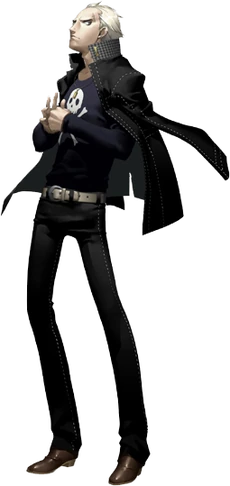Today, for all you Thursday's Children out there, I will take a look at how "far to go" characters in certain games have, in other words, their character development.
- Kanji from Persona 4 - At first glance, Kanji might seem like a stereotypical thug with an attitude problem. However, the game explores his insecurities that mainly revolve around his hobbies, such as sewing, which are generally perceived as feminine, as well as his attraction to Naoto before he even discovers that "he" is a "she". He slowly but surely learns to come to terms with who he is and who is he attracted to, and realises that it doesn't matter what your hobbies are or who you're attracted to, as long as you're happy and not hurting anyone. Therefore, even though Kanji is never explicitly stated to be bi or gay, he still serves a great message to LGBT people everywhere, which is, quite simply: "Be yourself - no shame, no fear."
- Geralt from The Witcher 3 - Geralt comes across as very gruff and even cynical at first, but as the game progresses, you get to define how he develops as a character - within the limits of how he was written of course! You get to choose if you want "harsh, tough Geralt", "kind, good Geralt", or "somewhere-in-between Geralt". The best part? The game dishes out consequences for almost every single action or sentence performed on Geralt's behalf, but it never ever judges you with any kind of hackneyed morality system. This makes choice vs consequences framework feel truly organic, unlike, say, BioWare's games.
- Estelle from The Legend of Heroes: Trails in the Sky FC & SC - Estelle starts off as a pretty obnoxious "genki" (energetic) girl stereotype, but gradually matures into a compassionate, wise and determined young Bracer, while never treading into "Mary Sue" territory. All of her growth and accomplishments feel earned, and all of her relationships with the main cast are interesting, or at least enjoyable. Her relationship with Joshua in particular is very bittersweet at first, but they do finally get their "happily ever after" by the end of SC. You can buy the first Trails in the Sky right here.


